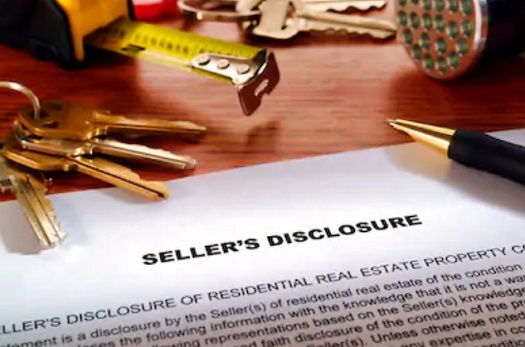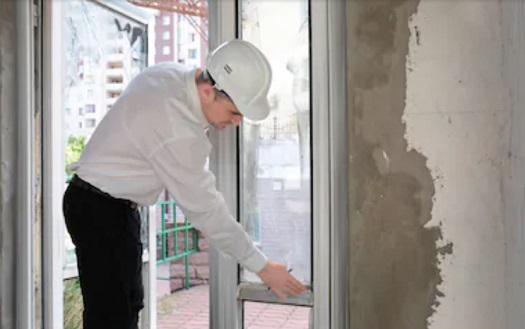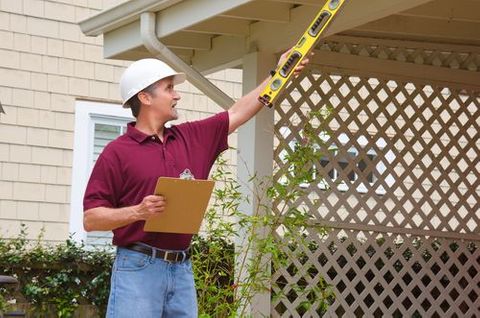No one, not a home seller or a buyer, wants to hear that a house has foundation problems. The foundation is one of the most critical elements of a house because it supports the entire structure. Faulty foundations can cause a building to fall apart at the seams. A property that isn’t structurally sound poses both financial and safety risks.
You might not know if your house has foundation damage, but there are telltale signs and specific ways that you and your agent can spot possible trouble.
Some buyers won’t even consider a house with that kind of wear and tear. The idea of living in an unstable structure, and the fear of a financial bottomless pit, cause buyers to hesitate.
When buyers consider a house that has foundation issues, they may wonder what else could be wrong. One of the major concerns is mold caused by standing water or plumbing issues.
Lack of interested buyers poses a problem for sellers with less than perfect properties. But the good news for sellers is, the damage isn’t always a deal-breaker. You can still sell your house even if the foundation is faulty.
There are those people, though, that are purposefully looking for a fixer-upper either to save money or to flip. And, there’s the tempting option of selling to a cash-paying investor who would be more than happy to take your problem off of your hands.
- How Do You Know if Your Foundation is Weak?
- Legal Disclosures
- Home Inspections & Structural Engineers
- The Foundation Isn't Your Only Problem
- The Costs of Repairing Foundation Issues in Your Home
- Don't Count on Your Homeowner's Insurance
- Your Reason for Selling Matters
- Buyer's Market or Seller's Market
- Financing a House with Foundation Problems
- Making Estimates and Repairs Work for You
- The Inconvenience of Living Through Foundation Repairs
- Conclusion
- ☎️ Contact The Vaughan Team
How Do You Know if Your Foundation is Weak?
There are a lot of reasons a home’s foundation may deteriorate over time. In some semi-arid areas such as Texas, foundation problems are relatively common.
All buildings settle some in time. Normal settling may cause small fractures in drywall. Any cracks that are a quarter of an inch or smaller aren’t of much concern. However, a break as little as 1/2 an inch could lead to tens of thousands of dollars in repairs.

Here are some things to look for that may reveal potential problems with your home’s foundation:
• Windows or doors that don’t open properly
• Warped walls
• Cracks in the ceiling
• Cracks in the walls, especially near the baseboards and ceiling
• warped walls
• Broken tiles
• Standing water, mildew smell, or mold
• Water leaks or mildew smell
• Staircase cracks in the masonry
• Cracks in the foundation itself
• Sloping floors or staircases
Your real estate agent has a trained eye for spotting potential foundation problems. Your agent can then help you decide how to proceed with the sale of your home.
Legal Disclosures
Once you’re aware that your house is sitting on an unsecured foundation, you have a legal obligation to notify buyers, in writing, of the faults. You don’t necessarily have to make the repairs yourself. Opinions differ on this, so talk with your real estate agent for more details. But you do have to be transparent, open, and honest about the condition of your property. Don’t wait until after you accept an offer. Be upfront and forthcoming.

If you wait to have the problem diagnosed and it gets revealed during the standard inspection, not only could you delay the entire process, but it could cause a buyer to withdraw their offer.
Home Inspections & Structural Engineers
A standard home inspection may reveal that there is a problem with the foundation, but not the cause or the severity of the issues. For an accurate report of what’s wrong and to obtain an estimate for repairs, you’ll need to contact a structural engineer.
A home inspector follows a basic set of guidelines and a code of ethics to check several factors about a property’s overall condition. An inspector will do a quick overview of:
• HVAC system
• Interior plumbing and electrical systems
• Roof
• Attic
• Floors
• Windows and Doors
• Foundation

When a standard home inspector discovers problems in the home’s foundation, he or she refers the homeowner to a structural engineer.
On the other hand, a structural engineer focuses in much more detail on the structure and maps the foundation, each floor, and the roof, without inspecting other areas of the house. In this way, you’ll know precisely the extent of the damage and what it will take to fix it.
Experts recommend getting three separate assessments from different structural engineers.
The cost of a structural engineer, on average, is about $600. While that might seem like a healthy chunk of change, it could save you big bucks down the road.
The inspections from home inspectors and structural engineers can take between two and four hours.
The Foundation Isn’t Your Only Problem
In other words, you won’t just have to fix the base of your home, but also whatever weakened it. Your problem might be tree roots, poor soil, improper drainage. Those are added expenses to you if you’re doing the repairs. Or to the buyer, who may feel even more at risk.
The Costs of Repairing Foundation Issues in Your Home
Foundation problems come in all shapes and sizes; some are minor and can be easily remedied. Others are more complex and far more expensive.
For minor repairs and small patches, you can expect to spend around $500. For moderate work, you may fork out about $5,000. And, in the case where the entire foundation needs replaced, you could spend well over $50,000.
According to Home Advisor, the national average for foundation repairs is just over $4,000. It’s up to you whether to invest that money and fix before you sell, or be willing to take a price cut to allow for repairs.

Don’t Count on Your Homeowner’s Insurance
There are certain things your homeowner’s insurance may not cover – including damage to the foundation. It’s not uncommon for homeowners to find themselves facing severe out-of-pocket funds for repairs. Check your insurance policy to learn if your foundation is covered.
Your Reason for Selling Matters
The reason you’re selling your house will influence how you proceed with your listing. If you’re selling your home because you already know of foundation weaknesses and can’t afford to fix them, your options for selling become more limited.
If you’re in the position where you cannot repair the home, talk with your real estate agent about your options. You can still list the house on the open market, but you can expect offers to be around 10-15% below fair market value. In this scenario, you can also anticipate fewer interested buyers because they’re afraid of the risk.

Another option is to sell your house as-is to an investor. Selling to an investor is an attractive option because it allows you to walk away and let someone else deal with the hassles. On the downside, however, investors sometimes pay pennies on the dollar or about 65% of your home’s value. You have to ask yourself if you can afford to sell your house as-is to a cash buyer.
However, if you’re selling the property for other reasons, you may choose to repair any damage before listing your house on the market.
You might find that the mathematics work in your favor if you fix your home’s foundation before you list it for sale. When your structure is sound, and your property is in good condition, you’re able to market your house for a higher asking price.
Your timeline will also come into play. Do you need to sell quickly to move, or do you have the time to wait until you can make the repairs and the market shifts in your favor?
Buyer’s Market or Seller’s Market
It’s going to be more challenging to list your less-than-perfect house in a buyer’s market.
On the contrary, a seller’s market is when more people are shopping for houses than there are houses to buy. Home values rise, and the buyer offers to become more competitive. In a seller’s market, you might have more flexibility in negotiating repairs.
Financing a House with Foundation Problems
Another pickle you might find yourself in is that buyers may not qualify for a home mortgage loan for a house with foundation issues. Many banks aren’t willing to take the risk. Financial institutions that are willing to take the leap may charge the buyer higher interest rates.
To make financing easier for buyers, and increase your chance of selling at a higher price, make the repairs before listing the house.
If you can’t afford to fix the foundation, you’ll likely have to consider selling your house for less to a cash buyer who doesn’t require financing.
Making Estimates and Repairs Work for You
When you choose to make the repairs on your home’s foundation before you sell, you could be doing yourself a favor.

With the right contractor, inspection reports, estimates, receipts, and warranties, you are providing your buyer the assurance that their new home is standing on solid ground. Fixing the issues first will allow you to attract more buyers and a higher sales price.
If you aren’t able to fix before you list, save the report and estimate from the structural engineer. That estimate could comfort the buyer in knowing how much they’ll need to spend.
The Inconvenience of Living Through Foundation Repairs
Whether it’s you or the buyer taking on the responsibility of repairing the foundation, there’s a good chance no one can occupy the home during construction – especially in cases of significant repairs.
Conclusion
There are many factors to consider when you’re selling your house. This fact is exemplified when the house has problems with the foundation. Because of the risk of financial constraint and safety hazards, many buyers won’t even consider buying a home with foundation issues. But that doesn’t mean it can’t be done.
Along with your real estate agent, walk around your home, inside and out, looking for any signs of damage. If problems are evident (or suspect), enlist the help of a structural engineer who can assess the damage and provide an estimate for repairs. But don’t settle for one report. Seek out multiple opinions to verify the problem areas.
Remember that the problems in the foundation are really symptoms of another issue, such as improper drainage. Whatever is causing the erosion of the foundation will also need to be repaired.
You may want to sell to a traditional buyer, but buyers may have trouble getting funding for a house that’s not structurally sound. If the buyer can get financed, they’re probably going to try to negotiate a much lower price to allow for repairs and additional problems.
Trust your real estate agent to assist you throughout the process of selling your house with foundation issues. Discuss the options of selling to the open market at a reduced price, selling to a cash buyer such as an investor for an even lower price, or making arrangements for repairs before listing your house for sale.
☎️ Contact The Vaughan Team


